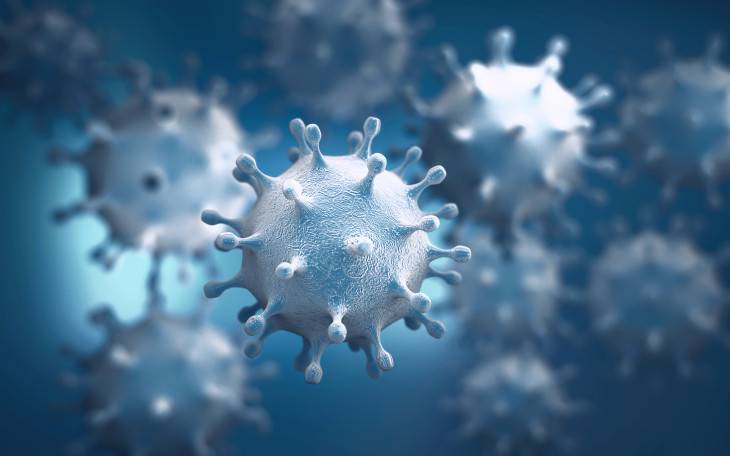
COVID-19 and its clinical manifestations appear to be determined by the novel SARS 2 corona viral strains, their genomic sequences and mutant forms. Additional factors may be the strength of the dose inhaled or ingested. However what is intuitive but often not addressed locally is our genetic make-up, genetic polymorphisms in the way we phenotypically express our genome and yet again how our immune response genes are expressed when faced with a foreign viral antigen invasion. Add to that, environmental factors and you have a potentially entirely different challenge in one's geographic location .
As the pandemic has swept through 205 countries, more than what we perhaps knew existed, the academic medicine and scientific community, primarily molecular biologists, virologists, geneticists, pharmaceutical scientists and biotechnology gurus have sprung into action worldwide. Pakistan has a rich complement of so called early phase translational scientists and some outstanding field epidemiologists and public health professionals.
However, one area we have neglected for the past seven decades are clinical researchers who practice and teach medicine, but also serve to anchor research teams around emerging clinical challenges.
We have way too long failed to understand that academic medicine stands on the tripod of service, education and translational research and if we are unable to address the latter, with scientifically valid clinical trials or high quality observational studies, we shall be forced to accept results of clinical research done in a very different population and apply it to our population without external validity or generalizability.
If we do not invest in capacity building in clinical research, we shall continue to perform studies with poor internal strength or validity, which in turn are not generalizable to the population at large.
The COVID-19 outbreak is an opportunity for Pakistan to develop a database of clinical and translational researchers who can sit together and conduct all phases of translational research at the assembly points of these suspected COVID-19 cases. Thus collaboration between biological scientists,pharmaceutical sciences, clinical researchers and epidemiological scientists is imperative if we want to take our sciences from the bench to the bedside to dissemination and implementation studies.
The Higher education commission and Pakistan science foundation and others through local and international grants have provided an incentive to translational scientists to contribute local solutions for our specific and unique locally presenting problems.
A collaborative approach is essential beyond the confines of so called public or private sector universities that also enlists certified clinical trialists and industry.
What is proposed, is a capacity building institute incorporating education, clinical research and patient safety/ quality management, that can work collaboratively with a multidisciplinary cohort of health professionals, endorsed and funded by Higher education commission and other regulatory bodies . This institute should be functioning with academic and intellectual freedom within ethical boundaries, so we can proactively deal with our own issues.
We need local solutions. The time is now, Pakistan!
As the pandemic has swept through 205 countries, more than what we perhaps knew existed, the academic medicine and scientific community, primarily molecular biologists, virologists, geneticists, pharmaceutical scientists and biotechnology gurus have sprung into action worldwide. Pakistan has a rich complement of so called early phase translational scientists and some outstanding field epidemiologists and public health professionals.
However, one area we have neglected for the past seven decades are clinical researchers who practice and teach medicine, but also serve to anchor research teams around emerging clinical challenges.
We have way too long failed to understand that academic medicine stands on the tripod of service, education and translational research and if we are unable to address the latter, with scientifically valid clinical trials or high quality observational studies, we shall be forced to accept results of clinical research done in a very different population and apply it to our population without external validity or generalizability.
If we do not invest in capacity building in clinical research, we shall continue to perform studies with poor internal strength or validity, which in turn are not generalizable to the population at large.
The COVID-19 outbreak is an opportunity for Pakistan to develop a database of clinical and translational researchers who can sit together and conduct all phases of translational research at the assembly points of these suspected COVID-19 cases. Thus collaboration between biological scientists,pharmaceutical sciences, clinical researchers and epidemiological scientists is imperative if we want to take our sciences from the bench to the bedside to dissemination and implementation studies.
The Higher education commission and Pakistan science foundation and others through local and international grants have provided an incentive to translational scientists to contribute local solutions for our specific and unique locally presenting problems.
A collaborative approach is essential beyond the confines of so called public or private sector universities that also enlists certified clinical trialists and industry.
What is proposed, is a capacity building institute incorporating education, clinical research and patient safety/ quality management, that can work collaboratively with a multidisciplinary cohort of health professionals, endorsed and funded by Higher education commission and other regulatory bodies . This institute should be functioning with academic and intellectual freedom within ethical boundaries, so we can proactively deal with our own issues.
We need local solutions. The time is now, Pakistan!
